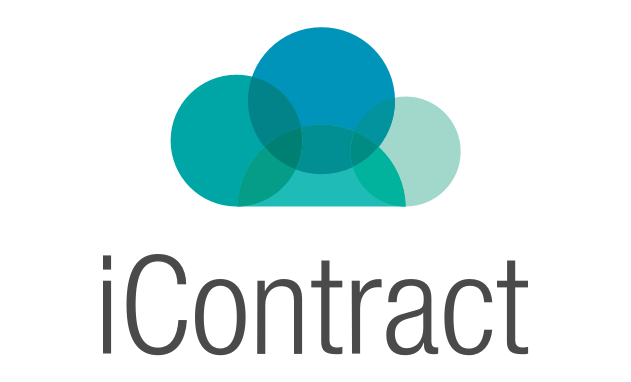If you are considering the option of becoming a contractor, one of the possible routes is working via an umbrella company. How and why you’d consider an umbrella company is another topic we have already written about in one of our earlier articles.
This blog provides the truth about the most common misconceptions you can find circulating on the Internet or that you hear colleagues talk about.
1. Umbrella companies are only about because of the IR35 legislation reform.
This is false. Umbrellas have been around since the early 2000s, long before the introduction of IR35 legislation changes in 2017 and 2021. They offer a reliable income for contractors with multiple and short-term contracts.
2. Umbrella employment is a scam.
This is false. The contractor services industry is largely unregulated, so bad elements appearing within are unfortunately quite common. Until the Government sorts out a way to regulate umbrella companies, contractors must be vigilant and careful about who they sign up with.
We’ve written an article on what to look out for when shopping around, which you can read here. Our top tip is to look for accreditations from the Freelancer and Contractor Services Association (FCSA) or The Association of Professional Staffing Companies (APSCo). Professional organisations thoroughly vet their members and ensure that they are compliant.
3. Umbrella companies are only after your money.
This is incorrect. A compliant umbrella company operates under the same rules as any UK employer, as in HMRC sets out the rules for taxes and National Insurance they deduct.
Umbrella companies make money by charging you a “margin”, which should be clearly stated on your payslip. Look at this article to learn how much tax and NI you pay as an umbrella employee.
4. You get to keep 90% of your pay.
This is false. Offering an unrealistic take-home pay is a common tactic by non-compliant companies to lure contractors in. As mentioned above, umbrella companies operate under the PAYE (Pay as You Earn) system, so the difference between their promised take-home pay should only be the difference in their margin deductions.
You may want to try our dedicated retention calculator and visit the blog section of our website, which has multiple articles on the subject.
5. Umbrella Companies deduct extra National Insurance.
Like any employment, you can expect income tax and National Insurance deductions on your umbrella payslip.
If you are a basic rate taxpayer (total earnings below £50,270 per annum), you’ll pay 20% tax and 10% Employee’s National Insurance on your earnings over the annual personal tax allowance (£12,570).
When you work through an umbrella company, they handle employment costs like taxes and pension contributions. Employment costs include the employer’s national insurance, pension contributions, and the apprenticeship levy. These costs are covered by the assignment rate, which is the money the umbrella company receives for your work.
It’s important to note that this rate isn’t the same as your actual pay because it includes these additional expenses. These costs don’t directly affect your take-home pay because the umbrella company ensures that they are covered separately from your pay. Recent laws require that you receive a Key Information Document (KID) explaining how your pay is calculated, so there shouldn’t be confusion about your earnings.
Deductions are shown on the payslip. Click here for a handy guide that explains what’s on a SmartWork payslip.
6. Umbrella employment is not self-employment.
This is correct. When you start with an umbrella company, you become one of its employees. The umbrella company helps consolidate your income into monthly or weekly pay and takes over the hassle that usually comes with self-employment. Not to mention IR35, which you don’t have to worry about as an employee.
You may still need to prepare a self-assessment return, though. To find out whether you have to, visit this article that explains it in detail.
7. Umbrella workers are exempt from IR35.
Yes, indeed, this is true. Umbrella companies provide employment, so they are IR35 compliant, and their workers don’t have to worry about IR35.
8. You can’t claim expenses as an umbrella worker.
This is incorrect, although it is understandable why some people are confused. In 2016, the Government stopped umbrella employees from claiming expenses if they work under any supervision, direction or control as they see them as regular employees.
Your umbrella company will test your contract to see if SDC (Supervision, Direction, Control) applies and if not, you can claim some expenses immediately and some at the end of the tax year via a P87 form.
A fundamental rule is that the expenses you claim are incurred by you wholly, exclusively and necessarily in performing your employment duties. Oh, and you need to keep your expense receipts!
Claiming expenses can be complicated, so we have a detailed guide to explain the process here.
9. You must join an auto-enrolment pension scheme when signing up with an umbrella company.
Like all UK employers, umbrella companies must enrol their employees on a workplace pension scheme. You can, however, opt out at a later date if you wish to. More details on auto-enrolment can be found in this article.
Often, umbrella companies offer other ways to contribute to a pension, so don’t forget to ask before joining.
10. Umbrella companies don’t provide the same employment benefits as traditional employers.
This statement is false. As an umbrella employee, you are entitled to the same statutory benefits as any other employee in the UK. This includes paid holiday, statutory maternity or paternity pay, sick pay and pension contributions.
Being an umbrella employee can give you the freedom of self-employment and the ability to choose between contracts (or even work multiple contracts simultaneously). All this is combined with the simplicity and security of employment benefits, where your administrative and tax deductions are taken care of.
We hope this article helped bust the myths about umbrella companies. If you have any more or would like to schedule a non-obligatory and free consultation, don’t hesitate to contact us via the contact form on our website or by calling 0800 434 6446.
Please look at our other featured articles to learn more, and don’t forget to follow us on LinkedIn, Twitter, or Facebook.



